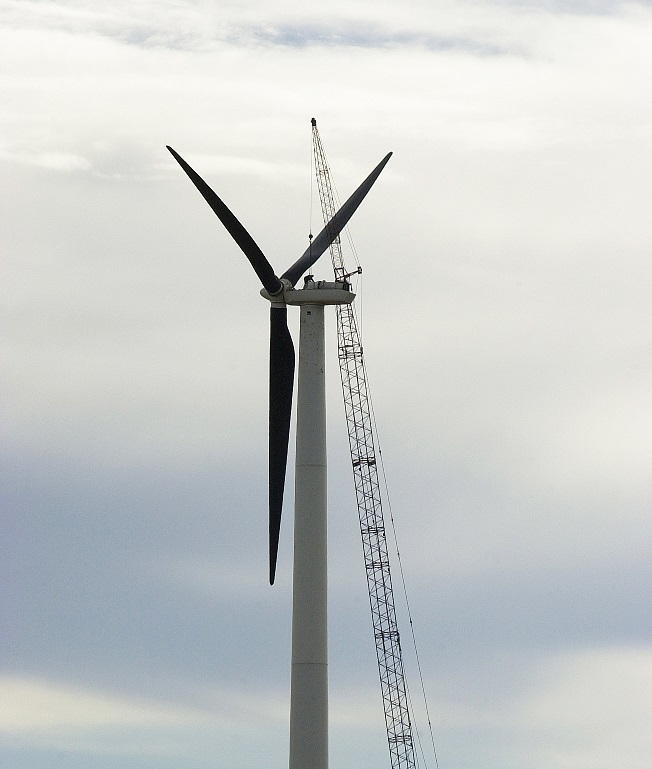Legislation seeks to lay the groundwork for energy storage
Storage is the next big thing. Folks working in the field of renewable energy have been saying that for a few years now.
And, if Minnesota is going to meet its goal of getting all its electricity from carbon-free sources by 2040, advocates say it must find a way to store that energy for future use.
HF1386 is designed to lay the groundwork for expanding the state’s energy storage abilities. Sponsored by Rep. Athena Hollins (DFL-St. Paul), it would establish several storage goals and guidelines, including setting a statewide capacity target of 3,000 megawatts to be deployed by the end of 2033 for all utilities that file integrated resource plans.
 (House Photography file photo)
(House Photography file photo)On Tuesday, the House Climate and Energy Finance and Policy Committee approved and re-referred the bill – as amended and further amended with an oral amendment – to the House Environment and Natural Resources Finance and Policy Committee.
With an as-yet-undetermined appropriation from the Renewable Development Account, the bill would direct Xcel Energy to award grants to owners of energy storage systems installed at the same site as a solar energy generating system, and require state site permits to be issued for energy storage systems with a capacity over 5,000 kilowatts.
The Renewable Development Account is a fund set up in 1994 when Xcel was given permission to store nuclear waste at its Prairie Island plant in southeastern Minnesota. Storage at its Monticello plant was added in 2007. For each waste cask used, Xcel gives the state between $350,000 and $500,000 annually.
“As many of our colleagues on this committee have pointed out, the sun is not always shining and the wind is not always blowing and you can’t flip them on immediately when you need more power,” Hollins said. “That’s where energy storage comes in. The deployment of energy storage would overcome one of the biggest obstacles in renewable energy: its cycling between oversupply and shortage. By smoothing imbalances between supply and demand, batteries could replace fossil fuel plants that have to kick in for a few hours when energy demand peaks.”
Objecting to the bill was Rick Evans, director of regional government affairs for Xcel Energy, the state’s largest utility. He expressed concern that it would disregard the integrated resource plans utilities already have in place, and would mandate storage policy strictly within Xcel service territory.
“This bill is pretty concerning to me,” said Rep. Chris Swedzinski (R-Ghent). “The idea that we’re going to create market certainty for the business owners who wish to install these batteries on the backs of ratepayers is really a shame. … This is not going to make folks’ rates cheaper.”
Hollins replied that the market certainty will ultimately be better for ratepayers.
Related Articles
Search Session Daily
Advanced Search OptionsPriority Dailies
Legislative leaders set 2026 committee deadlines
By Lisa Kaczke Legislative leaders on Tuesday officially set the timeline for getting bills through the committee process during the upcoming 2026 session.
Here are the three deadlines for...
Legislative leaders on Tuesday officially set the timeline for getting bills through the committee process during the upcoming 2026 session.
Here are the three deadlines for...